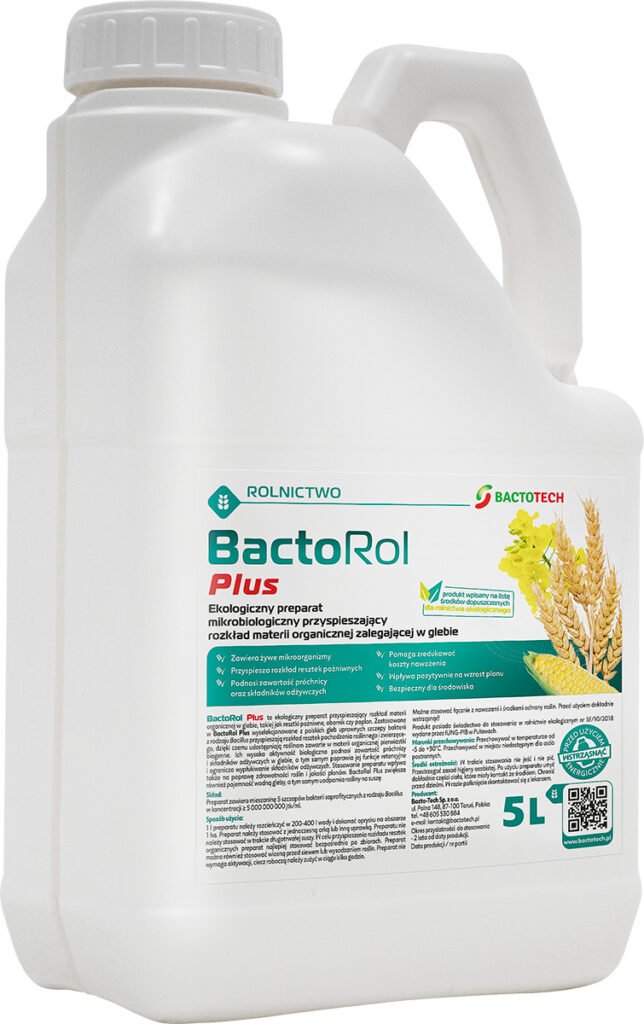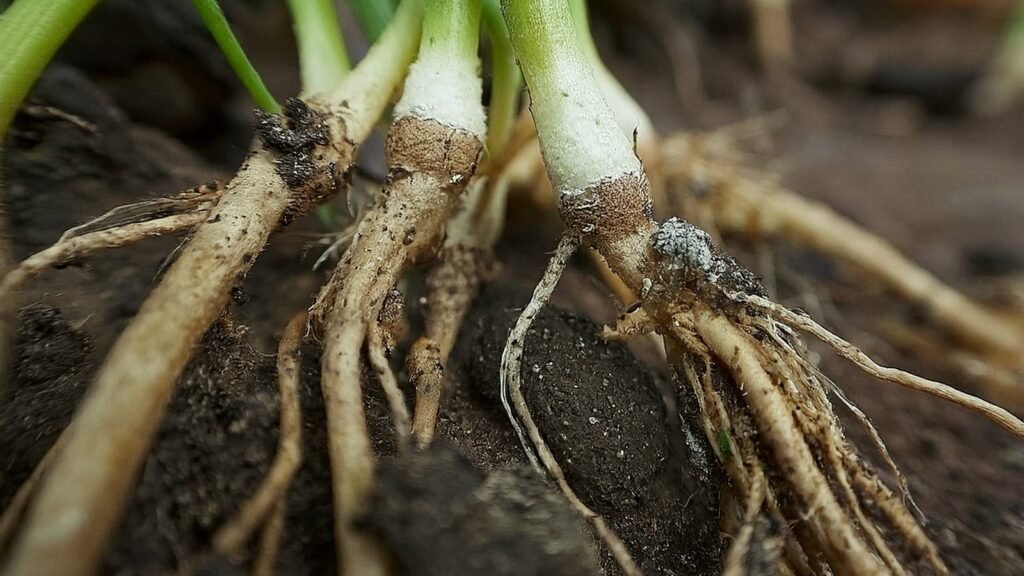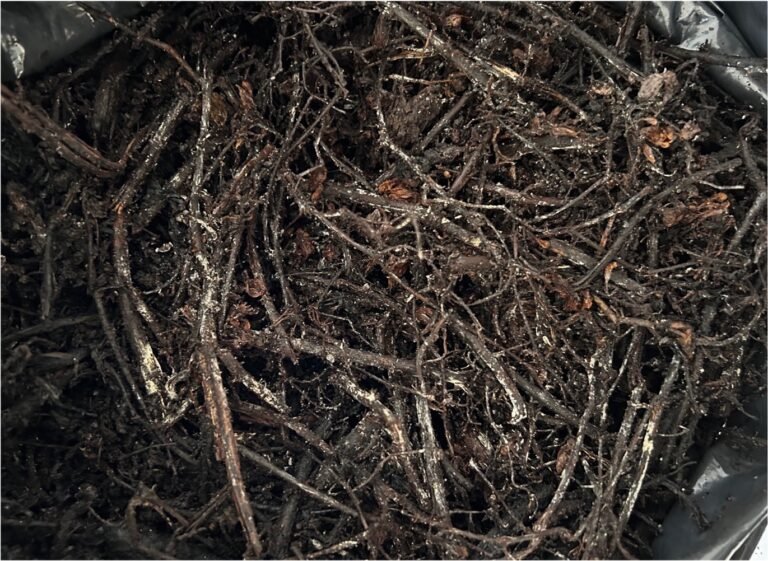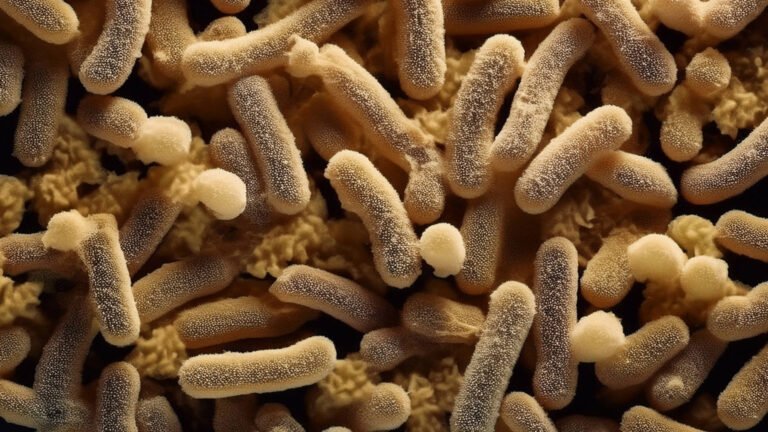Why Improving Soil Quality Matters More Than Ever
Healthy soil is the foundation of sustainable farming. Yet today, more fields than ever are suffering from the hidden costs of over-fertilisation – nutrient imbalances, poor soil structure, and a worrying loss of microbial life. If you’re seeing declining yields, compacted fields, or struggling with water retention, the problem often starts right under your feet. The good news? It’s not too late to turn things around and improve soil quality.
Improving soil quality doesn’t have to mean complicated changes or expensive new inputs. By working with nature – and using targeted microbial solutions like BactoRol Plus – you can rebuild soil health, boost plant performance, and cut down on chemical fertiliser use at the same time.
Tired soils, rising fertiliser costs, and unpredictable weather?
It’s time to stop fighting your fields – and start rebuilding them. Discover how BactoRol Plus can help you improve soil quality naturally, boosting resilience, crop yields, and long-term farm profits with the power of soil-friendly microbes.
In this post, we’ll show you:
- How chemical overuse harms your soil
- Why biological solutions offer a smarter path forward
- Six key ways BactoRol Plus helps improve soil quality naturally and sustainably
Whether you’re farming cereals, vegetables, grassland, or mixed systems, understanding how to restore your soil’s vitality is essential – not just for your next harvest, but for the future of your farm.

Key Facts
Over-fertilisation damages soil structure, biodiversity, and nutrient balance – making farming harder and more expensive.
BactoRol Plus uses Bacillus bacteria to naturally decompose organic matter and unlock essential nutrients trapped in tired soils.
It improves nutrient retention, reduces fertiliser leaching, and helps build stronger, deeper root systems.
BactoRol Plus enhances soil water-holding capacity, improving crop resilience during drought and reducing erosion risks.
Healthier soil leads to stronger plants, better yields, and lower input costs over time.
Boosting microbial diversity with BactoRol Plus creates a self-sustaining soil ecosystem – vital for future farm resilience and sustainability.
Improving soil quality naturally is no longer optional – it’s essential for profitability, regulatory compliance, and long-term success.
1. The Hidden Damage of Over-Fertilisation
For decades, chemical fertilisers have been seen as a shortcut to bigger yields. But when used excessively, they create a host of long-term problems that can silently undermine your soil’s health – and your farm’s future.
Here’s what happens when fertilisers are overused:
- Nutrient Imbalances:
Fields overloaded with nitrogen or phosphorus can lock up other vital nutrients like potassium and magnesium, leaving plants hungry despite high input costs. - Reduced Microbial Diversity:
Healthy soils depend on a complex web of bacteria, fungi, and other microorganisms. Heavy chemical use can wipe out this diversity, making soils less resilient and more dependent on artificial support. - Compacted and Tired Soils:
Over-fertilised soils often suffer from poor structure – less organic matter, fewer earthworms, tighter compaction. That leads to poor water infiltration, shallow root systems, and increased erosion risks. - Nutrient Leaching and Pollution:
Excess fertiliser doesn’t just stay in the field – it leaches into rivers, streams, and groundwater, contributing to water pollution and wasted money.
Over time, these impacts create a vicious cycle: more inputs, lower returns, poorer soils.
The solution? Working with nature, not against it.
And that’s where biological soil enhancers like BactoRol Plus come into their own.

2. How BactoRol Plus Helps Improve Soil Quality
Restoring soil health after years of heavy chemical use might seem daunting – but nature has powerful tools ready to help. One of the most effective is harnessing the natural abilities of beneficial soil microbes, particularly Bacillus bacteria.
BactoRol Plus is a carefully formulated microbial soil enhancer that uses a unique blend of selected Bacillus strains to rejuvenate tired, overworked soils. Instead of simply adding more fertiliser, it supports the soil’s natural processes, helping it regenerate from the inside out.
Here’s what sets BactoRol Plus apart:
- 🌿 Targets the Root Causes – tackles nutrient imbalance, poor structure, and low microbial diversity, not just symptoms.
- 🌿 Strengthens Soil Biology – boosts beneficial microbial populations for lasting impact, not quick fixes.
- 🌿 Works Across Crop Types – from cereals and vegetables to legumes and pastures, healthier soil benefits every farming system.
Improving soil quality isn’t just about adding something new – it’s about reviving what your soil already wants to do naturally. With BactoRol Plus, farmers can reduce their reliance on chemical inputs while building stronger, more resilient soils for the future.
In the next section, we’ll dive into the six major ways BactoRol Plus transforms your soil – and why it’s one of the smartest investments you can make in your farm’s long-term success.
3. Key Benefits of Using BactoRol Plus to Improve Soil Quality
When it comes to restoring tired, over-fertilised soils, BactoRol Plus works on multiple fronts at once. Here’s exactly how it helps improve soil quality naturally and sustainably:
a) Faster Organic Matter Decomposition
Chemical overuse often leaves behind crop residues and organic material that builds up without breaking down properly. The Bacillus strains in BactoRol Plus speed up decomposition, unlocking trapped nutrients and improving the soil’s organic matter content.
Why it matters:
- Boosts soil structure and fertility
- Releases slow-moving nutrients back into the soil cycle
- Supports healthier microbial ecosystems
b) Better Nutrient Retention, Less Leaching
Leaching wastes valuable nutrients and pollutes nearby waterways. BactoRol Plus increases the soil’s humus content, improving its ability to hold onto nutrients and release them steadily to crops.
Why it matters:
- Reduces fertiliser losses
- Cuts costs on inputs
- Protects groundwater and rivers from runoff pollution
c) Improved Soil Structure and Water-Holding Capacity
Over-fertilised soils often suffer from compaction, making it hard for roots to grow and for water to infiltrate. By boosting microbial activity and organic matter levels, BactoRol Plus aerates the soil and improves water retention.
Why it matters:
- Helps crops access water even during dry spells
- Supports deeper, stronger root systems
- Reduces erosion and surface runoff
d) Reduced Chemical Fertiliser Dependence
When soils regain their natural fertility, plants need fewer chemical inputs. BactoRol Plus makes essential nutrients like nitrogen and phosphorus more accessible to crops, lowering the need for synthetic fertilisers.
Why it matters:
- Cuts input costs
- Makes farming more sustainable
- Future-proofs farms against fertiliser price spikes
e) Healthier, Stronger Crops
Balanced soils create healthier plants. By optimising nutrient availability and improving soil conditions, BactoRol Plus supports vigorous plant growth, higher yields, and improved crop quality.
Why it matters:
- Boosts yield consistency
- Improves resistance to diseases and drought stress
- Enhances the nutritional value of harvested crops
f) Supporting Soil Biodiversity and Long-Term Ecosystem Health
Healthy soils are alive with bacteria, fungi, protozoa, and earthworms—all working together. BactoRol Plus enhances soil biodiversity, building a resilient ecosystem that can cycle nutrients naturally and withstand environmental pressures.
Why it matters:
- Reduces future input dependency
- Enhances farm resilience against climate extremes
- Helps regenerate ecosystems from the ground up
🌱 In the next section, we’ll look at practical examples of where and when BactoRol Plus can make the biggest difference—so you can start improving your soil quality with confidence.

4. Real-World Applications: When and Where BactoRol Plus Works Best
BactoRol Plus isn’t just a theoretical solution – it’s already helping farmers regenerate soil health in real-world conditions. Whether you manage cereals, vegetables, pastures, or mixed cropping systems, this biological approach can slot naturally into your operation.
Here’s when and where BactoRol Plus delivers the greatest results:
🌾 Fields Affected by Over-Fertilisation
If your soils have been subjected to years of synthetic fertiliser use, chances are they’re compacted, nutrient-imbalanced, and biologically depleted. BactoRol Plus helps restart the natural soil-building cycle, bringing soils back to life.
Ideal for:
- Arable fields with declining organic matter
- High-input maize, wheat, and oilseed rape rotations
- Heavily fertilised silage ground
🌱 Transitioning to Regenerative Farming
If you’re starting to reduce inputs or move toward regenerative agriculture, BactoRol Plus provides critical biological support during the transition phase, ensuring soil fertility is maintained while chemical use drops.
Ideal for:
- Farmers adopting reduced tillage, cover crops, or mixed swards
- Organic conversion farms needing to rebuild soil function
💧 Drought-Prone or Light Soils
Light, sandy soils and compacted clay soils often struggle to retain water. BactoRol Plus improves soil porosity and water-holding capacity, giving crops a better chance of thriving through dry spells.
Ideal for:
- Vegetable growers
- Cereal fields on sandy or silty soils
- Pastures suffering from summer dry-down
🛠 Integrated Soil Health Programmes
BactoRol Plus can be integrated into broader soil health strategies alongside compost applications, reduced tillage systems, and responsible fertiliser use for maximum impact.
Ideal for:
- Farms involved in agri-environment schemes
- Those seeking to meet new environmental standards or stewardship goals
- Growers preparing for sustainable farming incentive (SFI) compliance
💡 If you’re looking to improve soil quality naturally, enhance crop performance, and reduce your long-term input costs, BactoRol Plus could be the missing link in your system.

5. Why Improving Soil Quality Isn’t Optional Anymore
Soil health isn’t just a side project anymore – it’s becoming a critical survival strategy for farms across the UK and beyond.
Here’s why improving soil quality needs to be top of every farmer’s priority list:
Rising Input Costs
Fertilisers, fuel, and chemicals are more expensive than ever. When soils are biologically active and nutrient-efficient, farms can slash synthetic inputs – saving thousands of pounds each season.
Environmental Regulations Are Tightening
With water quality rules, nitrate vulnerable zones (NVZs), and future carbon farming standards on the horizon, farmers need healthier soils to stay compliant and protect their market access.
Climate Change Pressures
Unpredictable weather – long dry spells, intense rainfalls – is putting soil resilience to the test. Healthy soils with strong organic matter content store more water, buffer extreme weather, and help crops survive tough seasons.
Consumer and Supply Chain Demand
Retailers, food processors, and consumers are looking harder at farm sustainability credentials. Demonstrating active soil improvement gives farmers a stronger position when negotiating contracts and prices.
The Future Belongs to Farms That Work With Nature
Increasingly, the best-performing farms are those that rebuild soil biology, not just add more inputs. By investing in soil quality now, you’re building a business that can weather whatever comes next.
🌱 BactoRol Plus gives farmers an easy, effective way to start improving their soil naturally – reducing fertiliser dependence, improving yields, and safeguarding land for the next generation.

Further Reading: The Science Behind Improving Soil Quality
Curious to dive deeper into how Bacillus-based solutions like BactoRol Plus work?
Here’s a selection of research that highlights just how powerful soil biology can be when it comes to regenerating land naturally:
- Khan et al. (2022) — Microbe-mediated bioremediation studies show how beneficial microbes like Bacillus help break down excess nutrients and make them available for plants, playing a key role in soil recovery.
- Thonar (2024) — Research highlights how microbial additions improve nutrient cycling and retention, helping soils store and supply nutrients more efficiently.
- Zhou et al. (2024) — Demonstrated that microbial products with Bacillus strains can significantly improve soil’s physical properties, including better water retention and increased resilience to drought.
- Goglio et al. (2019) — Studies on nutrient cycling in microbe-treated soils show that Bacillus bacteria boost soil fertility and reduce dependency on synthetic fertilisers.
- Jackson (2022) — Found that biofertilisers using Bacillus not only enhance plant growth and yields but also improve resistance to disease — essential for stronger, healthier crops.
- Maddela and Venkateswarlu (2018) — Showed how Bacillus inoculations enhance microbial diversity, supporting robust, productive, and resilient soil ecosystems over the long term.
🌱 Science is clear: when we work with nature, healthier soils—and healthier crops—aren’t just possible; they’re inevitable.
Conclusion: Ready to Improve Your Soil Quality Naturally?
In a farming world facing rising costs, tighter regulations, and environmental pressures, improving soil quality is no longer optional – it’s essential.
Fortunately, restoring your soil doesn’t have to mean major disruption or costly inputs.
BactoRol Plus offers a science-backed, farmer-proven way to work with nature, not against it – revitalising tired soils, boosting plant health, and building long-term resilience.
By harnessing the natural power of Bacillus bacteria, you can:
- Improve soil structure and fertility
- Retain more nutrients and cut fertiliser costs
- Support stronger, more resilient crops
- Protect your land, your water, and your future
If you’re ready to stop fighting your soil and start working with it, BactoRol Plus is your first step towards a healthier, more profitable, and more sustainable farming system.
📣 Ready to Regenerate Your Soil?
Studies on microbe-mediated bioremediation (Khan et al., 2022) show that microbes such as Bacillus can break down excess nutrients and enhance nutrient availability.
👉 Explore how BactoRol Plus can transform your fields: [Bactorol Plus]
👉 Need personalised advice? Contact our team today
👉 Follow us for more soil health tips!
🌍 Healthy soil is the foundation of a thriving farm – and the future of farming starts beneath your feet.







